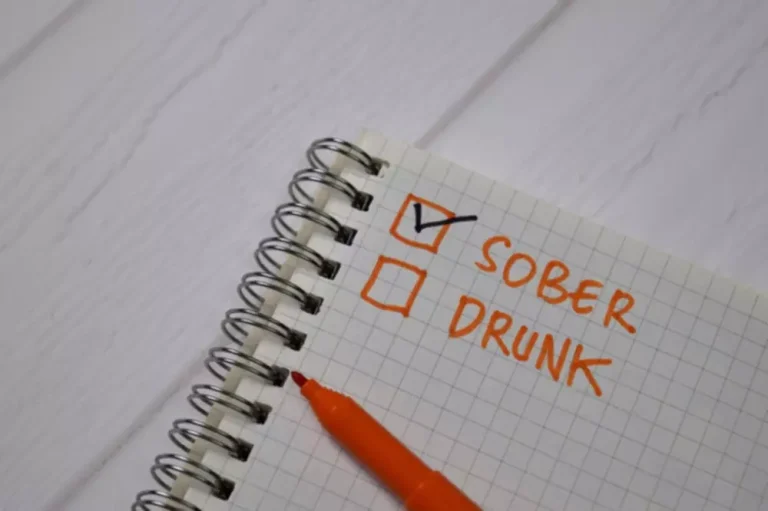
According to the NKF, individuals who have sustained an alcohol-induced AKI may require dialysis, depending on severity. Dialysis is a procedure that involves filtering waste products and excess fluid from the blood. According to the United Kingdom’s National Health Service (NHS), a person should consult a doctor if they experience https://ecosoberhouse.com/ symptoms consistent with kidney disease. The slope of decline in the eGFR estimated over 12 years was less steep in the higher alcohol intake groups (Fig. 3). The difficulties in successfully managing dilutional hyponatremia have resulted in the recent emergence of a promising class of new drugs to treat this abnormality.
Limitations of Existing Studies
You may need to take a complete break from alcohol for a set amount of time or reduce the amount of alcohol you consume. If you have UPJ obstruction, you may have kidney pain after drinking alcohol. This condition impedes the proper functioning of the kidneys and bladder. Alcohol affects the kidneys’ ability to keep the correct balance of water and electrolytes in the body. This leads to impaired function of the kidneys and increases the risk of developing kidney stones.
- Alcohol consumption also is known to induce a state of low blood sugar (i.e., hypoglycemia) and activate the portion of the nervous system that coordinates the body’s response to stress (i.e., the sympathetic nervous system).
- Hence, we sought to examine the association of alcohol consumption with the change and rapid decline in kidney function over 12 years in a South Korean population-based cohort study.
- Additional ingredients in mixed drinks may also add carbohydrate that must be considered.
- The detailed differences among the three drinking groups are analyzed by the univariable and multivariable Cox model.
Health Categories to Explore
- They filter waste from your blood, regulate the balance of water and minerals in your body and produce hormones.
- Those with a diagnosis of CKD in the medical insurance record before the interview date were excluded.
- As the rate of glucose breakdown increases, profound hypophosphatemia potentially can result.
The NKF adds that most people in the United States who have both liver disease and kidney dysfunction are alcohol dependent. Without adequate blood flow, the kidneys struggle to remove waste products and excess fluid from the blood. This type of sudden-onset kidney damage often resolves with time, but it can be lasting in some cases. A 2018 study found that having alcohol use disorder increased the likelihood of having a new diagnosis of CKD. However, the study authors also mentioned that more studies are needed to explore the connection between AUD and kidney function. The slope of the estimated glomerular filtration rate (eGFR) over 12 years according to baseline alcohol consumption categories among 5729 participants.
Treatments for acute kidney injury

Unfortunately, we only know that low-concentration ethanol can improve renal antioxidant capacity, but the exact dose and period are still unclear. Yes, alcohol use can lead to dehydration, temporarily increasing creatinine levels. Excessive alcohol consumption can damage the kidneys and, consequently, elevate creatinine levels. Red wine might offer potential health benefits, especially for the heart and kidneys, when you consume it in moderation. Some studies even suggest that red wine may contain health-supporting compounds like resveratrol and antioxidants (24, 25).
Ensuring no one faces kidney disease alone

Alcohol can cause changes in the function of the kidneys and make them less able to filter your blood. In addition to filtering blood, your kidneys do many other important jobs. “The good news is that earlier stages of steatotic liver disease are usually completely reversible in about four to six weeks if you abstain from drinking alcohol,” Dr. Sengupta assures. It varies from person to person based on the amounts and frequency of alcohol consumed, genetics, overall health, and lifestyle. For some people, heavy alcohol use can cause kidney damage after years of consumption, while it may happen sooner for others. Despite claims of potential advantages from moderate consumption, beer can have negative health implications.
But even low amounts of daily drinking and prolonged and heavy use of alcohol can lead to significant problems for your digestive system. But there’s plenty of research to back up the notion that alcohol does lead to weight gain in general. “Some people think of the effects of alcohol as only something to be worried about if you’re living with alcohol use disorder, which was formerly called alcoholism,” Dr. Sengupta says. Yes, alcohol can cause high protein in the blood due to liver damage and inflammation. Therefore, while some might claim that red wine protects the kidneys and overall health, recent research findings suggest this claim needs careful reconsideration.
Acid-Base Balance Effects
In fact, alcoholism is a serious problem in Asia, where 10.6–23.67% of men and 1.84–5.3% of women have a history of excessive alcohol consumption [3–9]. Kidneys that have been overworked due to excess alcohol consumption don’t function properly. This makes them less able to filter blood and maintain the correct water balance in the body. The hormones that control kidney function can also be adversely affected.

Mediterranean Diet Meal Plan: The Healthy Eating Guide

Drinking alcohol can affect many parts of your body, including your kidneys. A little alcohol—one or two drinks now and then—usually has no serious effects. At that stage, the kidneys have moderate damage and are not functioning at full capacity. Additional alcohol use can stress the kidney even further and worsen kidney function. Additionally, the kidneys help regulate blood pressure, stimulate red blood cell production, and contribute to bone health.
Alcohol and kidney disease
For example, Belliere and colleagues (2015) showed a link between rhabdomyolysis and excessive macrophage infiltration in the kidney, which in turn led to pro-inflammatory marker expression and consequent tissue injury (Belliere et al. 2015). Another study by Plotnikov and colleagues (2009) showed that mitochondria isolated from rat kidneys were damaged by oxidative stress when incubated with myoglobin. This finding suggests that rhabdomyolysis and myoglobin toxicity may trigger oxidative stress in the kidney via mitochondrial injury. However, various factors like the amount consumed, the duration, and individual response to alcohol can influence the effects. Some of the first signs of kidney damage from alcohol are increased urination frequency, weakness, and fatigue.
Search Results
- Prolonged rapid, shallow breathing results in excessive loss of carbon dioxide and decreased blood acidity (i.e., alkalosis), which in turn activates an enzyme that enhances glucose breakdown.
- Interestingly, studies find that CYP2E1 induction is much more robust in the kidneys compared with the liver (Roberts et al. 1994; Zerilli et al. 1995).
- However, Buja et al. suggested an inverse linear relationship between moderate alcohol consumption and the risk of age-related loss of renal function [90].
- In fact, its caloric content can contribute to weight gain, a risk factor for kidney disease (21, 22).
- While some might argue that moderate beer consumption could offer certain benefits, it’s important to consider the broader picture.
- Similarly, there’s minimal evidence to suggest that alcohol increases the risk of kidney stones or kidney infections.
- These changes can be profound in chronic alcoholic patients, who may demonstrate clinical evidence of dehydration.
This might mean eating a healthy diet, staying hydrated, exercising, quitting smoking, and limiting alcohol consumption. For most people, simply scaling back drinks to one or two a week is enough to dodge this particular bullet. For many others, especially those who are struggling with alcoholism or who have a history of alcoholism in the family, a complete how alcohol affects the kidneys ban on alcohol might be the safest option. The clinic notes that acute kidney failure as the result of alcoholism can develop in a matter of days or even hours. Full recovery is possible, but there is the risk that the kidneys will be damaged beyond normal functioning. More than two drinks a day can increase your chance of developing high blood pressure.



